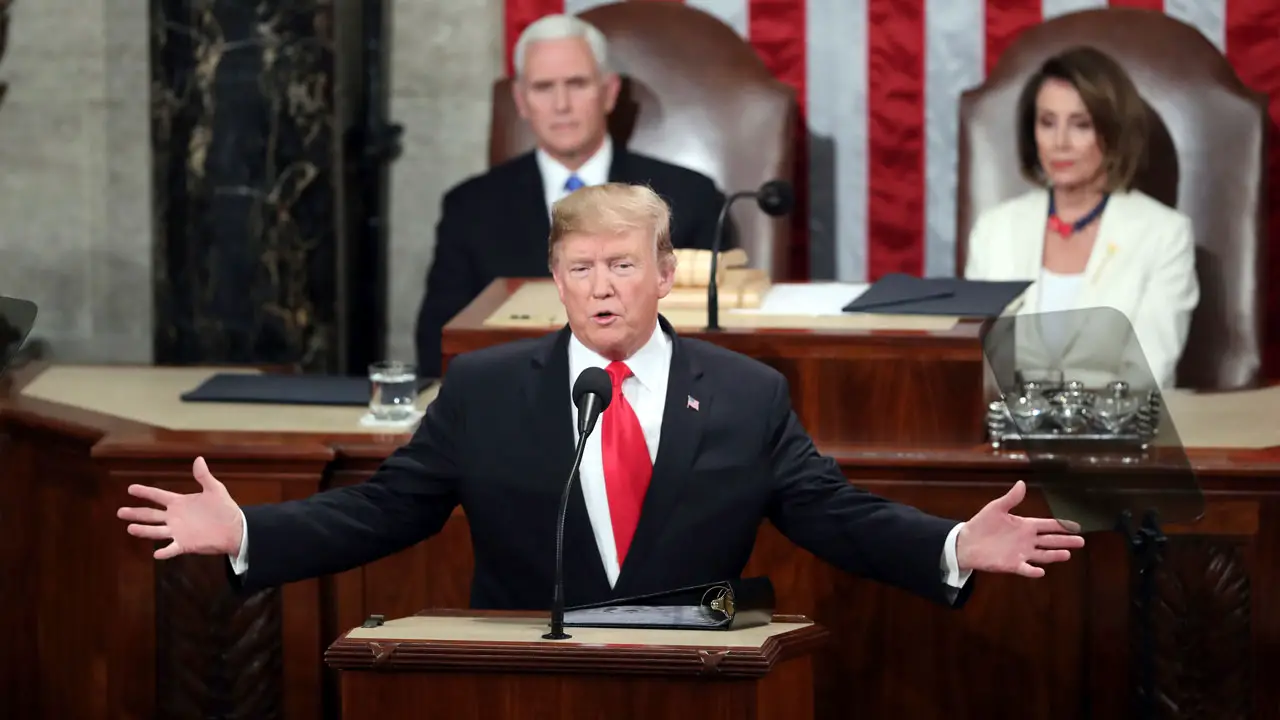President Trump delivered his second State of the Union address last night and generally received high marks from viewers according to various sources (CBS and CNN). His 2020 Democratic challengers wasted no time in responding to the speech offering their own take on what the President said, and didn’t say, and how they intend to frame the 2020 election narrative moving forward.
Reuters offers us a look at how some of the 2020 Democratic contenders responded:
U.S. Senator Cory Booker, who announced his own bid last Friday, said Trump’s call for unity on Tuesday was hollow.
“It takes more than a nod to unity at the top of a speech to bring our country together. Our president has spent the last 2 years trying to drive us apart,” he wrote on Twitter. “Actions speak louder than words.”
…
“He wasn’t moving us forward and rising to the challenges of the day,” Senator Amy Klobuchar said on MSNBC. She also hinted at a likely run for president, saying she would hold a rally in Minnesota on Sunday to announce her decision.
Senator Kirsten Gillibrand, who has launched her own White House bid, solicited campaign donations after a video of her shaking her head at Trump drew attention on Twitter.
“President Trump has had years to bring this country together, but instead he has chosen to divide the country across every single line he can imagine,” Gillibrand said in a statement.
The basic response is that the President’s speech was well and good, but his actions have spoken louder than his words over the past two years and where is the unity he’s talking about?
Here’s some more, most notably from Sen. Sherrod Brown of Ohio, who is still mulling a 2020 presidential campaign:
Other Democratic hopefuls railing against Trump included Senator Kamala Harris and Pete Buttigieg, the mayor of South Bend, Indiana.
Senator Sherrod Brown, who is weighing a presidential campaign, said Trump had not done enough for working people.
“The reality is that for far too many people in this country, hard work isn’t paying off like it should,” Brown said. “President Trump doesn’t understand that, and he’s used the White House to enrich people like himself.”
Brown’s comment about hard work isn’t the strongest message given the economic numbers that the President himself touted in the speech. Democrats likely have better paths to attack the President on other than the economy, which most voters tend to agree is heading in the right direction as wages increase and unemployment is hovering at record low levels.
A specific issue which 2020 Democrats may have an opening on rather than the economy is healthcare, something that the Republican-controlled Congress failed to deliver on over the past two years, and remains an issue that continues to languish. This was a weak spot for the President in 2018 and will continue to be in 2020 assuming no progress is made in the next 12 to 18 months.
Opinion writer Scott Jennings, in a piece at USAToday, argues that the President set the stage for the 2020 election by ramping up the culture war with Democrats on several key fronts which are aimed at firing up the Trump voter base:
Abortion politics returns. Democrats have overreached on abortion as of late and Trump wisely took advantage of it. The new late-term abortion law passed in New York and Gov. Ralph Northam’s gruesome comments in Virginia have reopened a front in the culture wars that will work for Trump if Democratic presidential candidates follow their fringe abortion activists down this grotesque rabbit hole. Trump’s base is strongly pro-life and is heartened by his continued support of their issue.
…
Socialism the new boogeyman. No matter who wins the Democratic primary for president, Trump set the predicate — his opponent, whoever it is, will be an adherent of socialist policies and is therefore unfit to lead. Democrats will wrestle with this as young stars like Rep. Alexandria Ocasio-Cortez and known commodities like Sens. Bernie Sanders and Elizabeth Warren dominate news cycles in Congress and the campaign to come. This is a reason why incumbent presidents are hard to unseat — they have the ability to define their opponents (think Barack Obama vs. Mitt Romney 2012) before they can define themselves.
Immigration is still Trump’s animating issue. The president spent a large chunk of time on immigration and the looming government funding deadline. He was smart to show that he has come down from a concrete wall to a see-through steel barrier to compromise with Democrats, but he probably should have left the caravan talk out of the final draft. The president’s winning hand on this issue is a willingness to compromise without giving up on barriers, a focus on safety and a plan to stop the drugs flowing over our southern border. Democrats don’t want to give the president a win, but they would be unwise to stand against any new barriers on the southern border.
As he did in 2016, Trump is going to need his base of Midwest rust-belt voters, including evangelical Christians, to hold down several swing states. Taking strong stands on abortion while also directly calling out the socialist influx into the Democratic Party in the 2018 midterm election are two ways to stir the base and draw some well-defined lines with his opponents.
Immigration, of course, remains his go-to issue and is also something that plays well with Trump voters.
Here’s a clip of some key moments that are getting a lot of mentions this morning:
Overall, the reaction tends to be favorable to the President with regard to the content of the speech.
How long can he keep that wave of unification moving? In 2018, he didn’t make it a day.
Donate Now to Support Election Central
- Help defend independent journalism
- Directly support this website and our efforts
